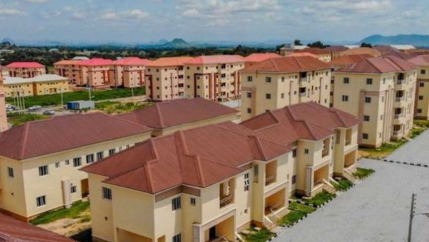Access to decent housing remains a global challenge, with over one billion people worldwide still living in poor conditions or facing homelessness, despite housing being recognised as a basic human right.
Nigeria reflects this reality more starkly, as the country’s housing deficit has risen to an estimated 28 million units. The shortage continues to push house prices beyond the reach of average families, forcing millions into slums and informal settlements with inadequate infrastructure, poor sanitation, and limited opportunities for upward mobility.
Analysts note that while Section 43 of Nigeria’s 1999 Constitution guarantees citizens the right to own immovable property, the gap between law and reality remains wide. The United Nations Habitat Agenda also stresses that adequate housing is a fundamental right, yet the majority of Nigerians still struggle to secure affordable homes.
Experts argue that government must prioritise housing delivery by scaling up investments in infrastructure, easing access to housing finance, and strengthening partnerships with private developers. Public-private partnerships are already being seen as key to bridging the widening housing gap.
Key bottlenecks in the sector include high costs of land acquisition, complex titling procedures, rising building material prices, and weak infrastructure. These challenges make it increasingly difficult for developers to provide affordable homes, leaving middle- and low-income earners shut out of the market.
The absence of a functional mortgage system also compounds the problem. Despite several government initiatives such as the National Housing Programme, progress has been hindered by poor funding, corruption, and weak project execution.
Observers warn that unless decisive action is taken, Nigeria’s housing crisis will continue to worsen, deepening poverty and eroding social stability. They stress that beyond policy pronouncements, concrete steps are required to make affordable housing a reality.
“Housing is more than shelter—it is the foundation of stability, dignity, and economic well-being,” one stakeholder noted, urging government to take bold steps to uphold housing as a human right.




